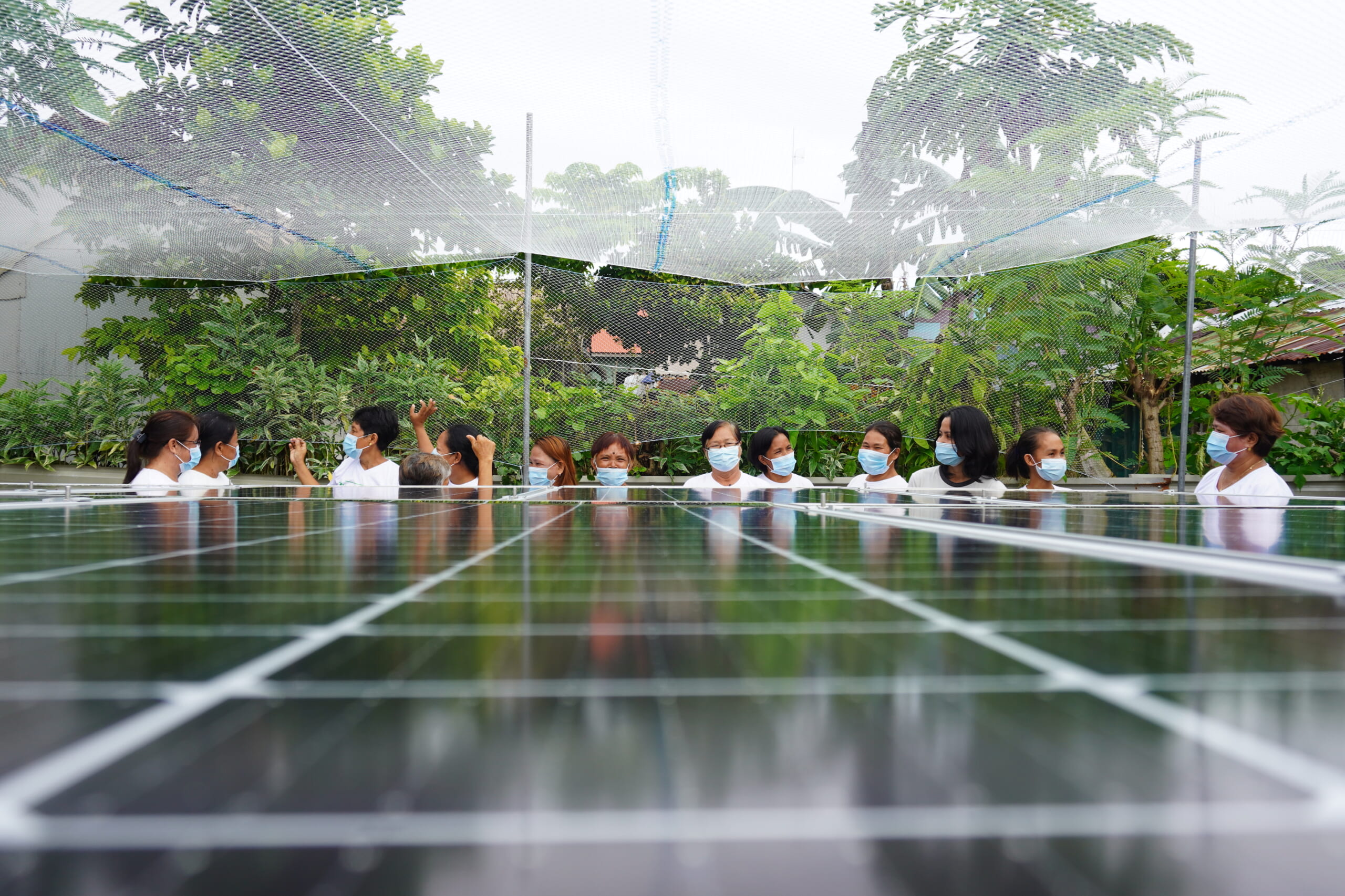
The women of Hilabaan Island in Dolores, Eastern Samar, Philippines have taken the lead in the maintenance of solar systems in their community (Photo: Oxfam Pilipinas)
In the pursuit of a just energy transition, it is crucial that gender justice is prioritized to ensure inclusive and equitable access and benefits that leave no one behind. This is especially important in Asia, where women and girls are disproportionately affected by energy poverty due to underlying gender inequalities and discriminatory social norms and gender roles. Unless decisive action is taken, women and girls are at risk of being unable to participate meaningfully in and benefit from Asia’s energy transition.
Women and girls generally undertake a greater share of unpaid care and domestic work, which limits their opportunities to pursue education or conduct income-generating activities. Often responsible for household tasks including cooking and cleaning, women are also more vulnerable to serious health outcomes due to reliance on traditional and polluting cooking methods, such as biomass and coal in many rural areas across Asia. Engaging in labor and time-intensive activities, such as traveling long distances to collect firewood, exposes them to increased risks of gender-based violence and overall insecurity.
As Asia’s energy transition moves forward, women can be negatively impacted in other ways, such as being excluded from meaningful consultations and decision-making processes. When large infrastructure developments involve resettlement or displacement, they may lose access to income and resources without compensation. Where there is compensation, it does not usually account for women’s limited rights to land and property, nor the economic impacts of the transition, particularly in the informal economy wherein women are predominantly engaged.
For Fair Finance Asia, the importance of gender justice in Asia’s just energy transition cannot be overstated. If gender justice is not prioritized, gender inequalities will prevail, putting half of the world’s population at risk of being left behind by the transition. This would be a missed opportunity to promote women’s empowerment through enhanced access to education, improved health outcomes, income-generating opportunities, and leadership in the new energy system. This is not only a matter of gender equality but also a matter of economic justice. The regional financial sector has a big stake in this and is also a critical lever of change should it choose to use its influence to support just energy transition initiatives.
To achieve gender justice in Asia’s just energy transition, policies and initiatives must be designed with a gender-transformative approach. This means that policymakers and financial institutions investing in the transition must consider the specific needs and challenges faced by Asian women in the energy sector and integrate their voices into decision-making processes. It also means ensuring that women have equal access to training, employment, and other economic opportunities in the renewable energy sector, and that their rights are protected throughout. On a broader level, it is important to address the social norms and cultural barriers that may prevent women from fully participating in the energy transition. This may require targeted efforts promoting gender equality and empowering women in the energy sector through enhanced benefits and financial incentives, as well as strategic initiatives to challenge traditional gender roles and stereotypes.
There can be no energy justice without gender justice. This International Women’s Day, Fair Finance Asia calls for stronger commitment and action from the regional financial sector to support initiatives that promote gender equality and women’s empowerment in Asia’s transition to renewable energy. By placing a strong emphasis on gender justice, we can ensure that no one is left behind in the pursuit of a cleaner, more sustainable energy future for Asia.
Bernadette Victorio is the Program Lead for Fair Finance Asia
For Further Inquiries, contact:
Kyle Cruz
Knowledge and Communications Manager
Fair Finance Asia